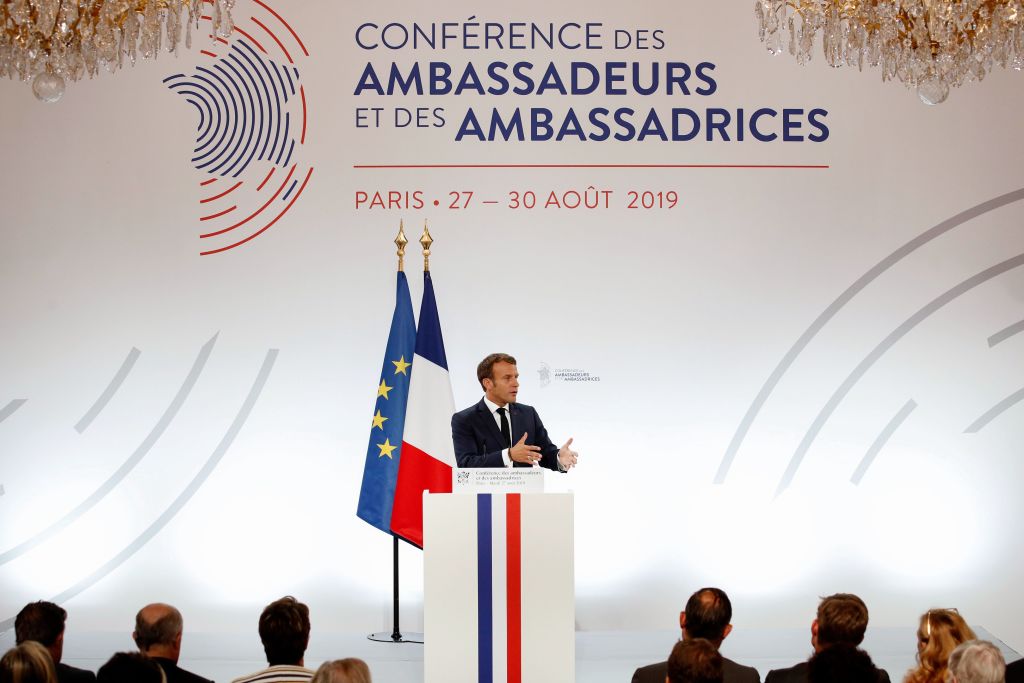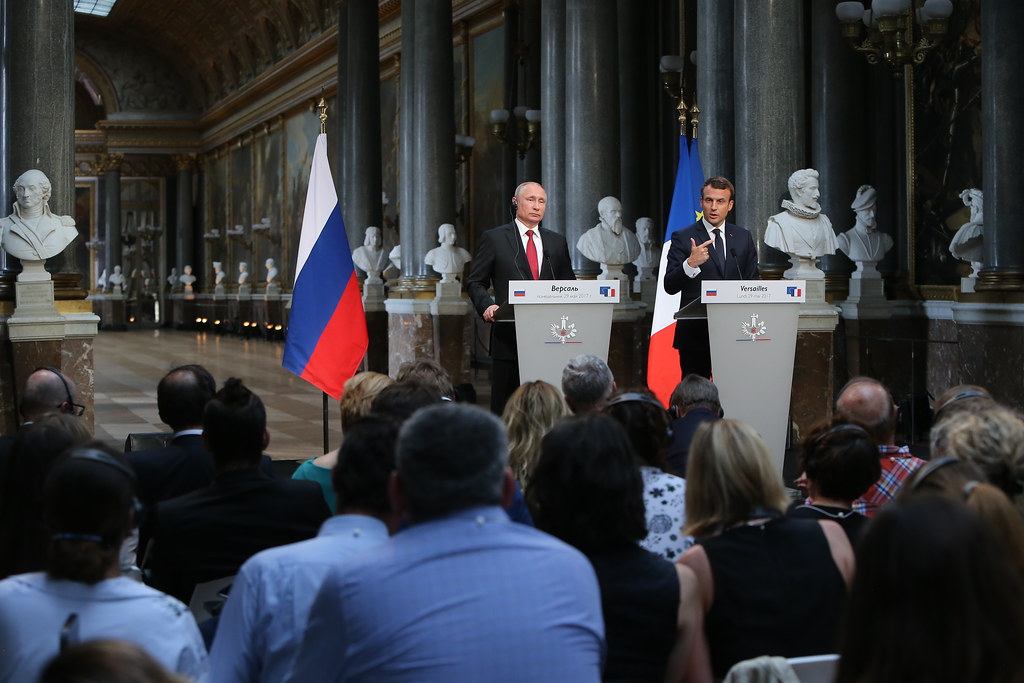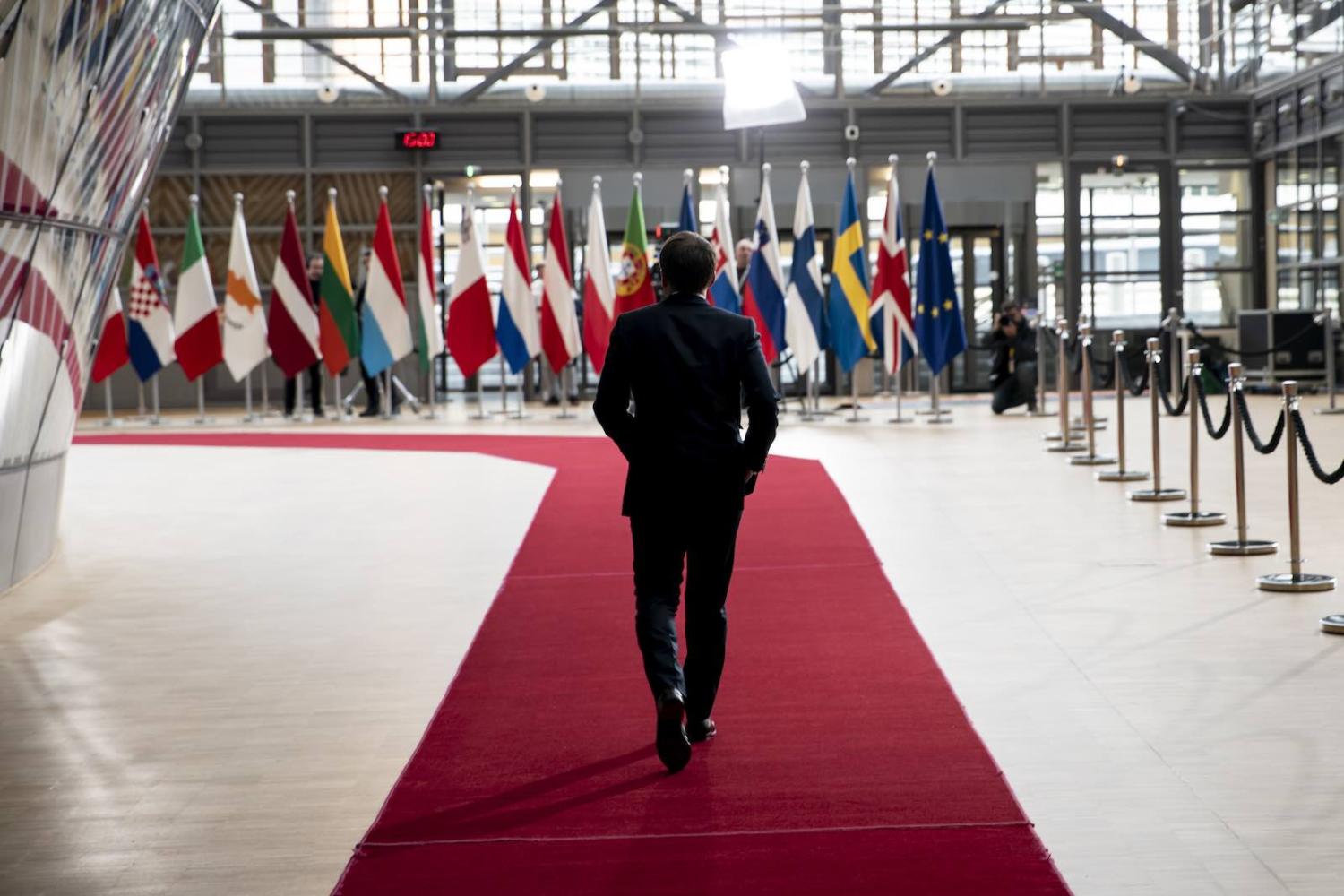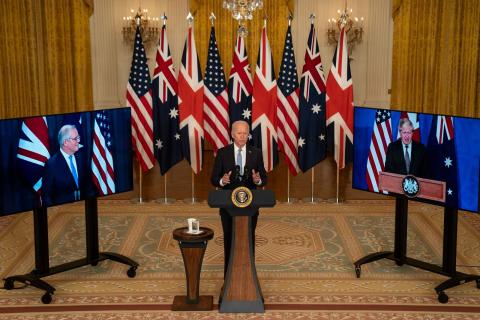Every year, the “Conference of the Ambassadors” is a central moment in France’s foreign policy, as the French president reflects on the country’s achievements and outlines its objectives for the upcoming year. This year was no exception, as President Emmanuel Macron detailed his strategy on 27 August in a speech that lasted more than one hour and 45 minutes.
Some strong continuities with Macron’s predecessors can be identified. For instance, the President emphasised the need to promote France’s influence (while falling short of using the term “rank”, which has so often been used by the various French executives since Charles De Gaulle). He also reminded the ambassadors of France’s “universal vocation” and its commitment to “humanism”. Finally, he highlighted the need to build a stronger Europe and a durable and mutually beneficial relationship with Africa. These themes have become “classics” of French foreign policy speeches over the last few decades.

However, the speech was also designed to signal a shift in France’s foreign policy, which, according to Macron, was necessary because “we are probably witnessing the end of the occidental hegemony in the world … and the world will be structured around two big poles: the United States and China”. He warned of the danger of this domination, because neither power represents France’s values (not even the United States, which “does not carry the same humanism”), while both promote “cumulative capitalism”, which “has led to inequalities that are no longer tolerable”.
The idea that France is not – and should not be – “an aligned power” has remained a powerful idea.
In order to address this challenge, Macron suggested a number of strategies, but two in particular are worth discussing here.
The first was the need for France to become “a power of equilibrium”. This idea is actually not a new one. During the Cold War era, especially during de Gaulle’s presidency, the various French executives tried to promote France’s rank and justify its permanent seat on the United Nations Security Council by presenting it as “the third way” between the United States and the Soviet Union.
Similarly, the idea that France is not – and should not be – “an aligned power” has remained a powerful idea in the post-Cold War era, as illustrated by France’s position against the Iraq war in 2003. It is, however, interesting to note the re-emergence of this kind of narrative.
Second, Macron emphasised the need to strengthen the European Union. The EU has been a priority for France since the end of the Second World War, but that has particularly been the case during Macron’s presidency, as illustrated by his trip to Germany on his first day in office.
But in his speech, Macron went a step further, arguing that there was a need to “promote a project of European civilisation”, because “we are the only geographical space which has put human with a capital H at the heart of its project” and France needs to “revivify the spirit of the Enlightenment”. He warned that a failure to do so might lead to the disappearance of Europe altogether. In order to fulfil these objectives and to “attempt to build a new order”, Macron encouraged the ambassadors to be bold, audacious, and to take risks.
But surprisingly – and some would argue, controversially – he also called for a rapprochement with Russia. Macron’s relationship with Vladimir Putin has not been an easy one. They have clashed over several issues, including Syria, Ukraine, Iran, and Russia’s alleged interference in various elections. The French president, however, argued that not redefining France and the EU’s relationship with Russia would weaken the organisation and would force Russia to isolate itself or be an ally of China. In contrast, he contended that a redefined relationship could be valuable not only to France and the EU, but could also benefit Russia “which has the gross domestic product of Spain, a declining demography, a rising political situation”, and which does not have the vocation to be the “minority ally of China”.

This rapprochement with Russia had been initiated a couple of weeks before, when Macron invited Putin to Brégançon on 19 August, one of the French presidential retreats. Macron argued that “Russia is European, very deeply so”, and accepted Putin’s invitation to attend the 2020 ceremony organised by Russia to commemorate the victory of the USSR against Nazi Germany. Similarly, two days later, Macron argued that Russia could be reintegrated into a G8 if progress were made on Ukraine, once again hinting at a shift.
At the Conference of the Ambassadors, the French president confirmed this shift in the Franco-Russian relationship as one of the main priorities of France’s foreign policy and warned the ambassadors that they should embrace it, thereby also reminding them that foreign policy remains a domaine réservé (reserved domain) of the executive power.
Only the future will tell if Macron’s risk was one worth taking. Tatiana Kastouéva-Jean, Director of the Centre Russia/NIS reminds us that between Macron and Putin, the two presidents have “very different views of the world”, so the rapprochement will not be easy. But if Macron’s pulls it off, it will not only strengthen the European Union and France’s role within it, it will also fortify France’s influence in the UN Security Council, which has been in a stalemate on several issues, partly due to the Russian veto.

